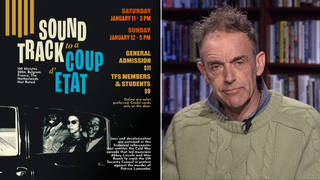
Topics
Last night was the 74th annual Academy Awards — the entertainment industry’s Big Night, Hollywood’s prom. Thisyear’s event had all the glitz and glamour of year’s past, combined with a solid dose of flag-waiving,sentimentality, and self-congratulation. There were also overwrought tears, long speeches, and not a fewdeclarations of the industry’s continued relevance, even in the wake of 9/11. But there were also some significantfirsts last night. Halle Berry won the award for best actress, becoming the first African American woman to win thataward in the Oscar’s 74-year history. She won for her role in the movie, “Monsters’ Ball.” In the best actorcategory, Denzel Washington took home the golden statue. It was only the second time in Oscar history that anAfrican American man had won that award. The first was Sidney Poitier, who was honored last night for his brilliantand barrier-breaking career in film.
Still, lest anyone think that too much had changed in the world of Hollywood, the Oscars last night also served upplenty to disturb as did the year in movies in general. It was a year dominated by just three or four bigproduction conglomerates as well as more multi-million dollar mediocrities than one cares to mention. It’s a trendthat will no doubt be repeated and even intensified in the years to come, as the Federal Communications Commissionand its chief, Michael Powell, push for ever more industry consolidation. Michael Powell, who is charged withoverseeing the entire spectrum of electronic media and communications, is the son of Secretary of State Colin Powell.He has come down decidedly on the side of big business.
Last year, for example, the courts overturned a long-standing rule limiting the percentage of the market a cableoperator can control. Powell could have appealed the order, but instead, he launched a study to see if any cap isjustified at all. Shortly after his appointment, Powell ironically declared: “The night after I was sworn in, Iwaited for a visit from the angel of the public interest. I waited all night, but she did not come.” Well thisweekend, the “angels of the public interest” descended on the Washington office of the Federal CommunicationsCommission. On Friday afternoon, media activists gathered to serve Powell notice that they will oppose his effortsto further consolidate big media. They say Powell was appointed to serve the public interest; instead he does thebidding of the media elite
Guests:
- Warcry, Information Liberation Front.
- Pete Tridish, Prometheus Radio Project, a not-for-profit dedicated to the democratization of the airwavesthrough the proliferation of non-commercial, community based, micropower radio stations.
- Jeff Chester, executive director of the Center for Digital Democracy.
Related links:












Media Options